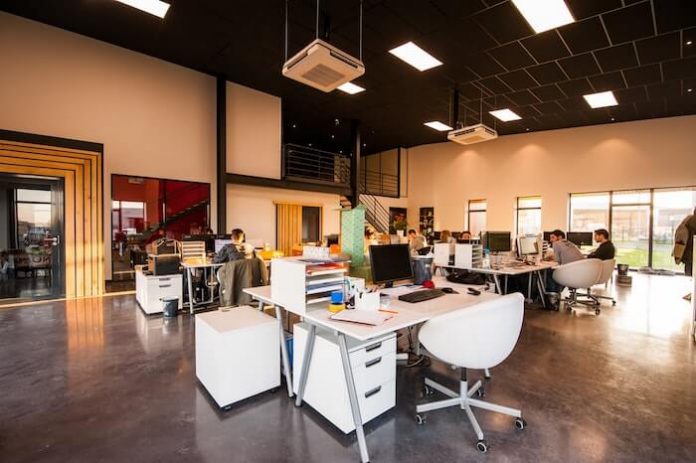Wondering how you can improve your organization’s culture? Organizational culture loosely refers to the collective way of doing things in a company. As such, there is no single thing that can influence the way employees to feel about their work. Several things can affect the employees’ attitudes, and you should consider them when you develop the culture for your business. Read on to learn everything to know about making good habits part of your office culture.
Create Meaningful Values
Values are critical in the operations of any company since they guide the behavior of everyone and the way they should interact with each other, clients, and the community. Therefore, you need to create and communicate meaningful values that can be shared by all members of the company. As a leader, you must build values that are important for the firm and easy to understand. This will help employees understand what is expected of them to eliminate uncertainties. Values help align the operations of the organization, and they are for everyone.
Establish a Clear Smoking Policy
Smoking, particularly vaping, is common among many people, but it is a dangerous habit. Public health professionals at Triton explain that vaping devices contain nicotine, a chemical that alters the normal functioning of the brain. Vaping is increasingly becoming an epidemic in workplaces and other areas like schools. The trend is a cause for concern since the practice affects the normal functioning of the people involved.
However, the good news is that there are various resources you can consider to combat this challenge. For instance, you can consider installing vape detectors in the workplace, but you must make everyone aware of this development. This should be accompanied by education, monitoring, and constant reminders to all employees about the need to maintain a clean environment in the workplace.
Select the Right People
Make it a habit to select the right people from the onset to ensure that the new employees will work well with others. Check if the person you hire fits the organization’s values and culture. It is essential to use interview questions that are centered on your company’s core values and ask how prospective employees will contribute to the company’s overall culture. When you hire new people, try to push them out of their comfort zones to assess their behavior.
More importantly, you must provide meaningful onboarding to set your employees for success. When the new hires know what they should do in the organization, it becomes easier to familiarize themselves with the company’s culture. According to research, about 90% of the new hires quit their jobs within the first three months. To avoid this, you need to ensure the new employees feel connected to the organization, and their team. When you establish the right priorities, all the new hires will feel welcomed from the start.
Empower Employees
Employees also have goals, so you should empower them to make decisions that affect their operations. For instance, employee involvement in the decision-making process can go a long way in creating a sense of belonging to the organization among the employees. This will motivate them to put the optimum effort into their operations. To achieve this, you must provide the right control, support, and power to help the workers make decisions. As a leader, you must set your expectations reasonably and provide the employees with the necessary resources to do their jobs.
Prioritize Employee Engagement
Employee engagement remains a major issue, with about 34 percent of the employees feeling engaged in their work according to different studies. You can make a big difference if you engage your employees regularly, so they feel connected to your mission and vision. Take time to educate your workers on the company’s mission and its purpose. Inform the workers about the organization’s progress and all the changes you may need to implement. When you treat your employees as valuable assets, they will identify with the company.
Encourage Professionalism
Create a suitable environment that promotes professionalism in the workplace. For instance, you need to emphasize the importance of things like punctuality and dressing properly for work. Employees that arrive early for work usually get high-performance reviews. Adhering to deadlines is another critical habit you can inculcate among your employees to build a formidable culture for your company.
Communicate Effectively
Effective communication is vital in every aspect of your business. If you fail to communicate with your team, you may face challenges in your operations and these can impact your goals. Make sure you use simple language that is easy to understand. Remember that timing is essential when you communicate important information about your organization. Additionally, you also need to know that a two-way communication system helps you communicate your message properly. You can reinforce your message by asking relevant questions to avoid confusion among your employees.
Recognize Your Employees
Employee recognition is another important aspect that can lead to the development of your organization’s culture. You need to reinforce positive habits, make your workers feel appreciated, and retain the best talent to create a formidable culture. However, you should know that employees are different, so you should customize the needs of each person. When you show that you care about your employees, they will meaningfully contribute to the development of your organizational culture.
While it is crucial to recognize your employees for their effort in the company, you also need to make tough decisions. If you fail to hold your employees accountable, you may unknowingly create a negative environment where other team members may end up getting frustrated and ultimately leave the company. As a leader, make it a habit to have tough conversations with the people failing to display the expected behavior.
Organizational culture plays a crucial role since it shapes the behavior of the employees. The success or failure of the company depends on how well your employees are prepared for their work. To achieve your goals, it is vital to create good office habits that can contribute to the development of meaningful culture.












